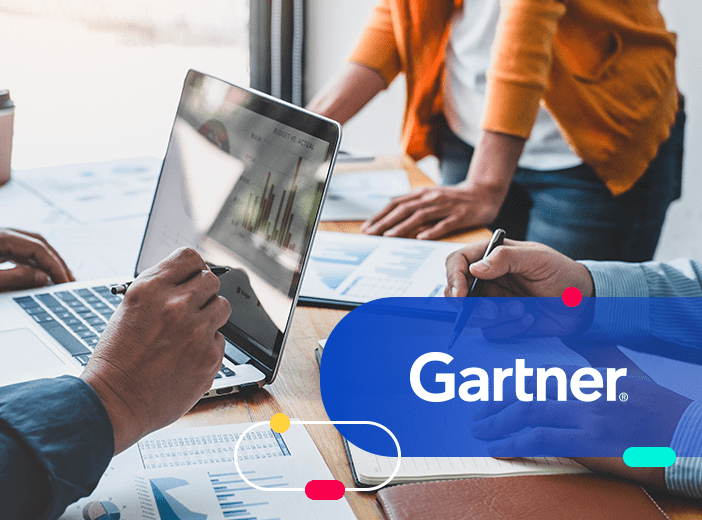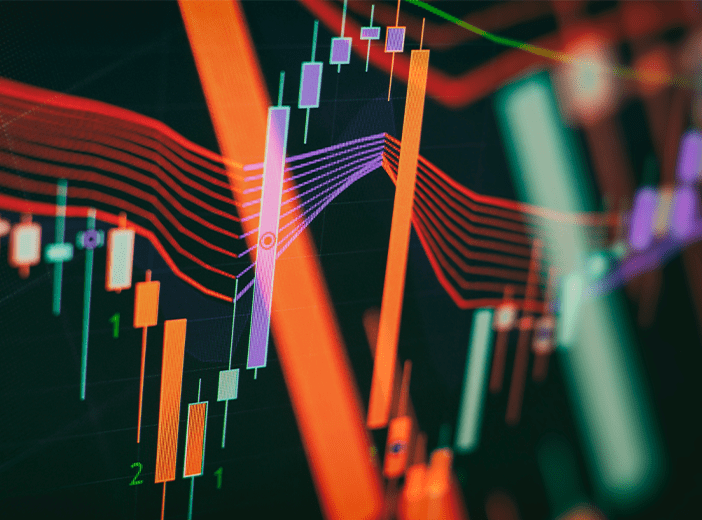Data Act, Data Governance Act: making the most of industrial data

Today’s more connected world means that we are surrounded by data. Connected consumers and industrial devices, and Internet of Things sensors, generate terabytes of information every minute. But how can companies turn this data into value and new opportunities? Our blog looks at what is needed to transform industrial data into a business and societal asset.
As traditional industries digitize, the amount of data they create and make available is increasing exponentially. For example, we are seeing an enormous growth in the Internet of Things (IoT), with analysts IDC expecting spending in the sector to top $1 trillion in 2022.
Areas as diverse as healthcare, retail, agriculture and industry are all benefiting from IoT, enabling companies and individuals to capture, store, process and transmit new sources of data. This industrial data, generated by connected consumer and industrial devices covers everything from smart home appliances and cars to machines and sensors within factories.
Turning industrial data into value
However, the value within this data isn’t being unlocked – 80% of industrial data collected within Europe is never utilized according to the EU, with the US seeing a similar picture.
Often data is simply used for its primary purpose, such as monitoring a machine in a factory. Instead, if it is shared and merged with other datasets much deeper insights can be created and new business models launched. For example, industrial companies can:
- Build digital twins of their factories, processes or products, enabling them to forecast future performance and carry out preventive maintenance before machines go wrong;
- Use the data they generate for AI analysis, better automating processes and optimizing efficiency;
- Sharing data with partners and other stakeholders (such as universities and startups) can drive innovations and help meet crucial challenges around sustainability and decarbonization.
Lessons from the European Data Act
In Europe, policymakers are focusing on how they can drive the increased use and sharing of data assets. As part of this the European Commission launched the Data Act proposal earlier in 2022, complementing the 2020 Data Governance Act. The aim is to create a European digital economy around data by smoothing the flow of non-personal data, putting the EU at the forefront of a data-driven society. With this set of rules, the volume of data available for reuse will increase significantly and is expected to generate €270 billion in additional GDP by 2028.
Even though the legislation only applies to companies operating within the EU, it provides a template for other countries and also highlights best practices that other industrial companies should look to follow.
First, let’s look at the two acts and their aims.
A review of the main principles of the Data Act and the Data Governance Act
The Data Act aims to establish harmonized rules regarding access to data generated by connected devices as well as related services. The main objective is to open up and facilitate access, management and sharing of this data for consumers and for third-parties.
A series of measures have thus been put in place to:
- Ensure fairness in the digital environment by allowing users of IoT devices to access and share the data they generate via innovative data services.
- Stimulate the development of a competitive data market through the creation of standard contract clauses for negotiating and drafting fair data sharing contracts.
- Enable public organizations to access and utilize data produced by private actors in order to address exceptional circumstances (such as floods, fires, crises, etc.)
- Facilitate switching between cloud services and to provide safeguards against unlawful data transfer.
The Data Governance Act aims to transform the data practices of private and public organizations. It includes three main measures:
- The option to reuse certain categories of protected data held by public sector organizations (such as confidential business information, intellectual property, personal data). Public organizations will need to regulate the conditions for reuse and ensure that personal data is properly anonymized and that confidential data is subject to modification, aggregation or processing prior to reuse.
- Mandatory certification for providers of data intermediation services between private companies, preventing these providers using the data for their own purposes.
- Optional certification for organizations practicing data altruism. This allows individuals to voluntarily make their data available without compensation for public interest purposes, such as healthcare research, combating climate change, improved mobility, public policy, and scientific research.
- The creation of the European Data Innovation Council. Members will be responsible for formalizing best practices in this area for Member States and advise the European Commission on standardization.
The goal is to create a European data economy centered around the free circulation and reuse of data in order to make Europe a hub of innovation.
The aim of the EU legislation is clear – encourage organizations which produce industrial data to collect and enhance it, and to make it widely and securely available. This doesn’t just benefit the wider economy, but organizations themselves as they can get a greater return on their investment in IoT devices and mass data storage solutions.
Opendatasoft: a 100% compliant solution
An all-in-one data experience platform like Opendatasoft allows you to manage your entire data value chain and to meet all the requirements of the various regulations. You can:
- Automate the connections to your data sources and gather them into a single catalog that can be accessed without the need for special skills
- Enrich your data and prepare it for reuse
- Create visualizations with our no-code tool, and create pages and subdomains
- Manage access to sharing and conditions for large-scale reuse
Industrial data enhancement: use cases
Many organizations are beginning to understand the potential from better sharing and reuse of their industrial data. They can therefore learn from those that are pioneering new business models in this area, such as Opendatasoft customers Schneider Electric and Birdz Veolia.
Schneider Electric creates a Data as a Service marketplace for energy stakeholders
To respond to competitive challenges in a rapidly changing industry, Schneider Electric has created the Marketplace Exchange – an online space for innovation and exchange between Schneider Electric and its partners.
The platform allows the company to monetize its industrial data and to create new revenue streams. By accessing Schneider Electric’s data services marketplace, users can benefit from:
- A wide variety of resources, including APIs, analytics and datasets to improve digital offerings
- Digital tools and expertise to adapt solutions and to accelerate the marketing of these solutions
This enables the users of Marketplace Exchange (currently 540 people from 200 companies), create new services and target new customers that were previously difficult to reach.
Birdz Veolia uses Opendatasoft to complement its line of IoT sensors
Birdz designs innovative industrial IoT products to support the monitoring and sensing needs of cities, regions and manufacturers:
- KAPTA sensors for analyzing the quality of drinking water;
- SWARM sensors for measuring the quality of river water and guarding against pollution risks;
- APILink sensors for analyzing the performance of fire hydrants and improving their operation;
- LEKO sensors for monitoring biodiversity.
In order to offer a quality service to its customers, Birdz has moved beyond simply providing sensors. Through new subscription services, it now develops and provides customers with interactive dashboards and data visualizations that translate their data into valuable insights. This benefits customers by providing them with complete access to management tools that help them better utilize data and create value, while opening up new revenue opportunities for Birdz itself, differentiating itself in the market.
Want to learn more about the benefits of the Opendatasoft platform for utilizing industrial data? Contact us now!

High quality data is at the heart of successfully training and deploying AI algorithms and agents. Our blog explains how organizations can ensure that they are sharing easily actionable, machine readable data with AI through data products and data product marketplaces



